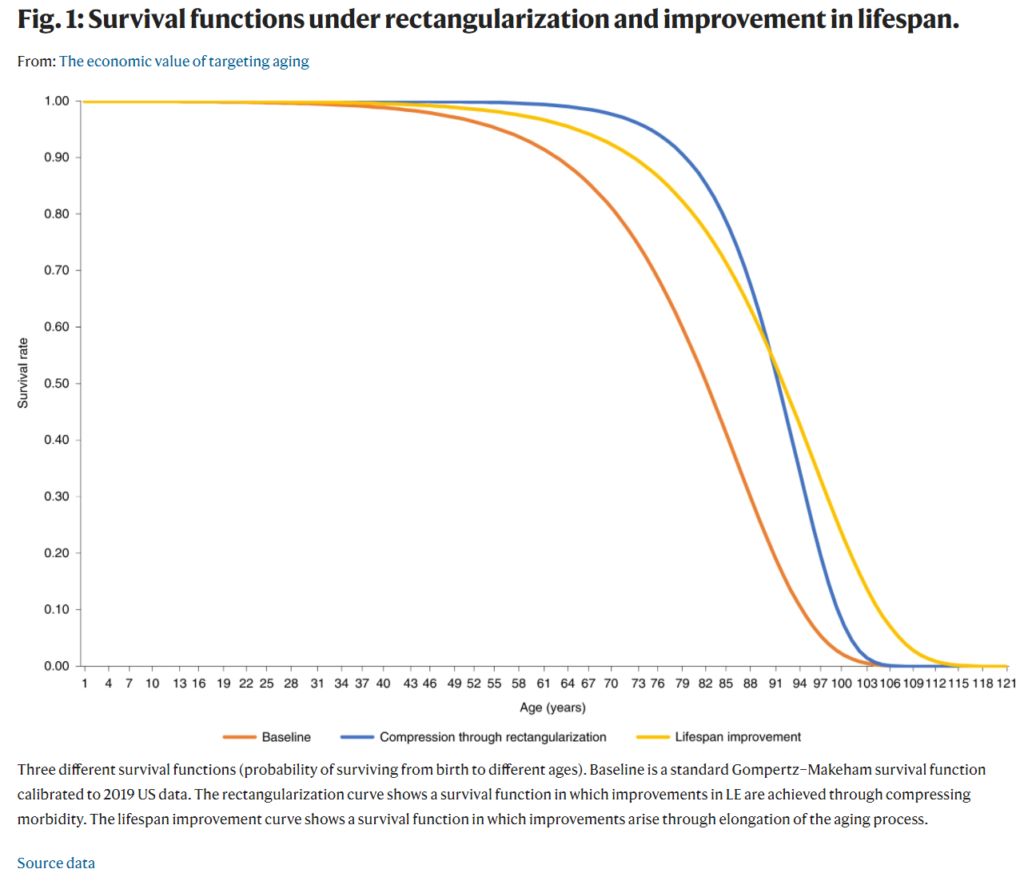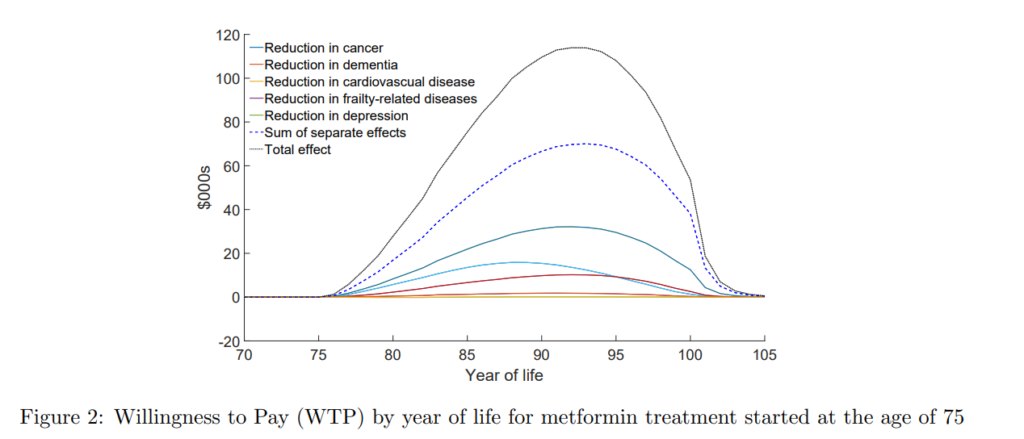Link:https://www.thelancet.com/journals/lanhl/article/PIIS2666-7568(21)00247-6/fulltext
Graphic:


Excerpt:
As the demographic transition enters a new stage of a longevity transition, focus needs to extend beyond an ageing society towards a longevity society. An ageing society focuses on changes in the age structure of the population, whereas a longevity society seeks to exploit the advantages of longer lives through changes in how we age. Achieving a longevity society requires substantial changes in the life course and social norms, and involves an epidemiological transition towards a focus on delaying the negative effects of ageing. The broad changes required to achieve healthy longevity include an increased focus on healthy life expectancy, a shift from intervention towards preventive health, a major public health agenda to avoid increases in health inequality, the establishment of longevity councils to ensure coordinated policy across government departments, and intergenerational assessment of policies, to ensure that in adapting to longer lives, policies are not skewed towards older people. A longevity society represents a new stage for humanity and requires deep-seated notions about age and ageing to be challenged if society is to make the best use of the additional time that longevity brings.
Author(s): Prof. Andrew J. Scott
Publication Date: December 2021
Publication Site: The Lancet, Healthy Longevity

